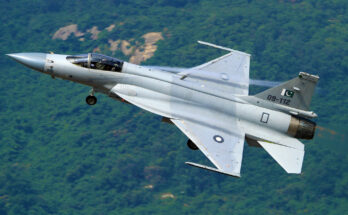
A little shy of a year since its failed merger with Lockheed Martin, Aerojet Rocketdyne is being courted by a new suitor, L3Harris Technologies, which agreed to acquire the firm in a $4.7 billion deal.
In February of this year, Lockheed terminated its $4.4 billion acquisition of Aerojet Rocketdyne following a Federal Trade Commission (FTC) lawsuit that sought a preliminary injunction to block the acquisition on antitrust grounds. The FTC argued, “If consummated, this deal would give Lockheed the ability to cut off other defense contractors from the critical components they need to build competing missiles.”
Pushback from competitors also fueled the deal’s ultimate demise. In its suit, the FTC alleged that acquisition would give Lockheed control over the propulsion systems used by rivals such as Boeing, Northrop Grumman, and Raytheon Technologies, which would stifle competition and innovation.
Originally, in December 2020, Lockheed Martin agreed to acquire Aerojet Rocketdyne Holdings as part of an effort to consolidate its supply chain. Aerojet Rocketdyne’s propulsion systems are already a key component of Lockheed Martin’s supply chain and several advanced systems across its Aeronautics, Missiles, and Fire Control and Space business areas.
The L3Harris acquisition would not face those vertical integration concerns, making the deal much more palatable to government regulators. The company said that the “acquisition will ensure the defense industrial base and our customers will have a strengthened merchant supplier to effectively address both current and emerging threats – and promote scientific discovery and innovation – through targeted investment in advanced missile technologies, hypersonics and more.” Simply put , the deal further diversifies L3Harris into the markets for civil space, strategic defense systems, and precision munitions.
Aerojet Rocketdyne became an attractive acquisition target, with news reports stating that several suitors were in the running for the operation, including General Electric, Textron, and private equity firm Veritas Capital.
Aerojet Rocketdyne’s attractiveness is due to its position as a key supplier of military rocket and missile propulsion systems – many of which are produced by Lockheed Martin and were key factors in that deal getting canceled. Global instability is increasingly becoming the new normal, and, as such, launch and missile systems will remain strongly funded. The company has a key position on the Ground-Based Strategic Deterrent effort as well as work on several next-generation hypersonic propulsion systems. Sales have been driven upward of late thanks to demand for the Guided Multiple Launch Rocket System (GMLRS) and Medium-Range Ballistic Missile (MRBM). In addition, NASA awarded Aerojet Rocketdyne a $1.8 billion contract modification in May 2020 for the production of an additional 18 RS-25 engines to support future deep space exploration missions. Programs such as these helped drive the firm’s backlog to a record $6.8 billion, roughly three years’ worth of work at current levels. More recently, in April 2022, United Launch Alliance (ULA) issued the largest RL10 contract ever awarded to Aerojet Rocketdyne to deliver 116 RL10C-X engines for its Vulcan Centaur rocket. The new engines will support ULA as it works to fulfill its commitments under a contract it received from Amazon to support the launch of its massive Kuiper satellite constellation.
In 2021, Aerojet Holdings’ sales rose 5.5 percent to $2.19 billion, from $2.07 billion in 2020. The company posted net income of $144 million for the year, compared to $138 million for 2020. The company’s 5,000 employees operate primarily out of advanced manufacturing facilities in Canoga Park, California; Camden, Arkansas; West Palm Beach and Orlando, Florida; Huntsville, Alabama; Orange, Virginia; Redmond, Washington; Stennis Space Center, Mississippi; Jonesborough, Tennessee; and Carlstadt, New Jersey.
The deal is expected to close in 2023, subject to required regulatory approvals and clearances and other customary closing conditions.
Forecast International’s Defense & Aerospace Companies, Volume I – North America service includes coverage of over 100 key U.S. and Canadian primes and their subsidiaries. Each of the 39 reports contains data on recent programs, mergers, and joint ventures. Among the notable corporations covered are OEMs such as Boeing, Lockheed Martin, Raytheon Technologies, and General Dynamics. Also featured are Tier I and Tier II contractors such Pratt & Whitney, Honeywell, Parker Hannifin, and Spirit AeroSystems. Click here to learn more.
A military history enthusiast, Richard began his career at Forecast International as editor of the World Weapons Weekly newsletter. As the Internet became central to defense research, he helped design the company’s Forecast Intelligence Center and now coordinates the FI Market Recap newsletters for clients. He also manages two blogs: Defense & Security Monitor, which covers defense systems and international security issues, and Flight Plan, focused on commercial aviation and space systems.
For more than 30 years, Richard has authored Defense & Aerospace Companies, Volume I (North America) and Volume II (International), providing detailed data on major aerospace and defense contractors. He also edits the International Contractors service, a database tracking all companies involved in programs covered by the FI library. Richard currently serves as Manager of the Information Services Group (ISG), which develops outbound content for both Forecast International and Military Periscope.



